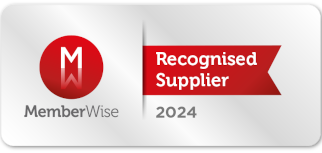
What can other automotive businesses learn from the Volkswagen rebrand?
Howard,
-
DOWNLOAD
Your Content Marketing Checklist >

-
REQUEST TODAY
A Content Consultation >

Over the past few weeks, we've started to see evidence of the Volkswagen rebrand spring up online.
This company-wide initiative has reportedly seen every aspect of the brand, its products, communications and automotive content marketing reviewed.
You can see the start of the automotive branding initiative on social media. Volkswagen changed their logo on Facebook on 27th September, so it's still quite early to judge how radical a change it is for the brand. Rome wasn't built in a day, nor can the emissions scandal that prompted the rebrand be forgotten so quickly.
Putting the needs of the customer first
What interested us about the automotive branding for Volkswagen is that it arrived with messaging about how car brands need to change their agenda and recognise the needs of the audience.
It's an agenda we've long been advocating and refined further through the insight generated from our Automotive Marketing Report and in our work with Pulsar, who reinforced our findings through social media listening, monitoring car conversations online.
 What we can see is that there needs to be a fundamental shift in how businesses tackle their automotive branding when it comes to addressing their audiences: our report highlighted the fact that a massive 45% of the people we polled across all demographics say they've not seen any car marketing in the past 12 months.
What we can see is that there needs to be a fundamental shift in how businesses tackle their automotive branding when it comes to addressing their audiences: our report highlighted the fact that a massive 45% of the people we polled across all demographics say they've not seen any car marketing in the past 12 months.
What's also telling is the fact that when it comes to newer technologies and innovations, audiences didn't seem to be getting the information they needed either: only 34% of consumers agree there is enough information about electric cars available to them; 26% echoed that for autonomous driving.
Car brands in general aren't delivering on these messages – or if they are, they're not landing or resonating with what audiences actually need.

The Volkswagen rebrand includes an update to their communications.
So what is the automotive branding strategy?
Jochen Sengpiehl, CMO of Volkswagen, says:
"We have created a new holistic global brand experience on all channels and across all touchpoints.
'As a general principle, the aim in future will not be to show a perfect advertising world. In our presentation, we want to become more human and more lively, to adopt the customer's perspective to a greater extent and to tell authentic stories."
Interesting.
Our research reflected this need for the automotive industry to start operating as other sectors have, in a marketing landscape highly influenced by us common folk.
We discovered that while core messages long beloved by the automotive industry, such as 'price', 'safety' and 'tech spec' are still important for consumers, you could add in 'fun' and an increasing interest in the environment as other important factors for consumers. Looking at Volkswagen's rebrand and subsequent output, you can certainly see them picking up on the 'fun' aspect of cars.
But what was particularly interesting was that while these messages are definitely of consideration, the conversations being had were more evolved, reflecting the interests and needs of multiple types of consumer and the communities they belong to.
For example, the cyclist community were involved in all these conversation topics, but championed environmental themes; young women were interested in safety, particularly when it came to their dogs; and there was a music/rap community of young men particularly interested in fun – who knew?!
Casual car buyers
What the research also highlighted was the fact that most people don't really care about cars – 43% of our respondents called themselves casual car buyers.
This naturally presents both an opportunity and challenge to any car brand, but highlights their need to understand any audience in detail and provide the right tools and relevant content for them. There is no longer a 'one size fits all' approach when it comes to marketing messages.
And it would seem that Volkswagen is thinking in this way. Take a look at its extensive FAQs for electric and hybrid cars, which answers every kind of question consumers may have.
Elsewhere on Volkswagen's social media, it appears to be business as usual so far. Yes, we can see bolder and more colourful visuals, as promised. But there still appears to be a high gloss output rather than a reflection of the real world, as was suggested. However, there's a bit of a nod towards becoming more humorous and human.
View this post on InstagramSpace for company. #coffee #vwtouareg #volkswagen #vw
A post shared by Volkswagen (@volkswagen) on
Is this enough? Time will tell of course, but automotive marketing in 2019/20 needs to have a radical consumer-centric overhaul if it's going to be relevant to a more discerning audience which is now experiencing these approaches in multiple other sectors.
Read more insightful articles
See more from the blogContent marketing – are you taking a sustainable approach?
The changing face of the luxury consumer
Evaluating the success of your email strategy
How to create a digital magazine
Proud to be a winner of industry awards, recognised as content marketing experts in print and digital media.












